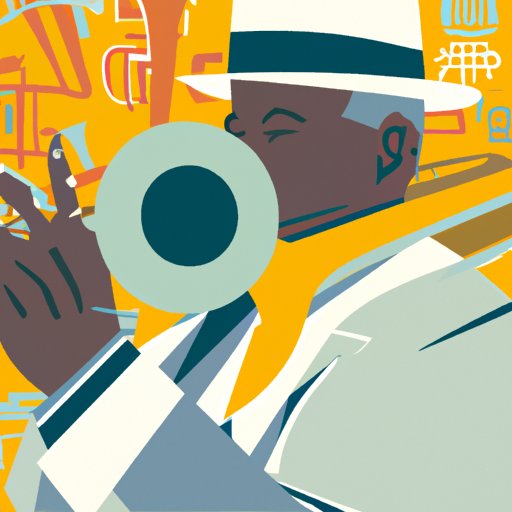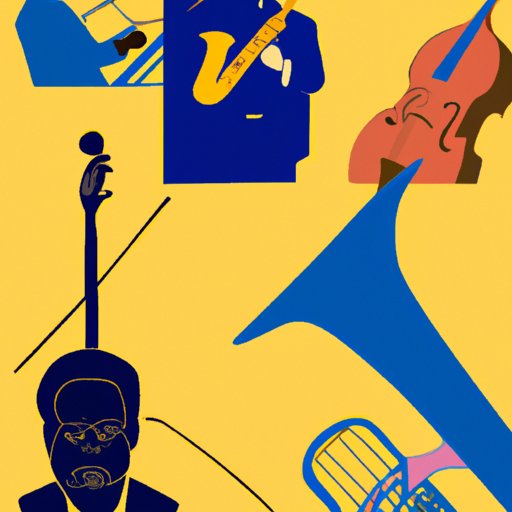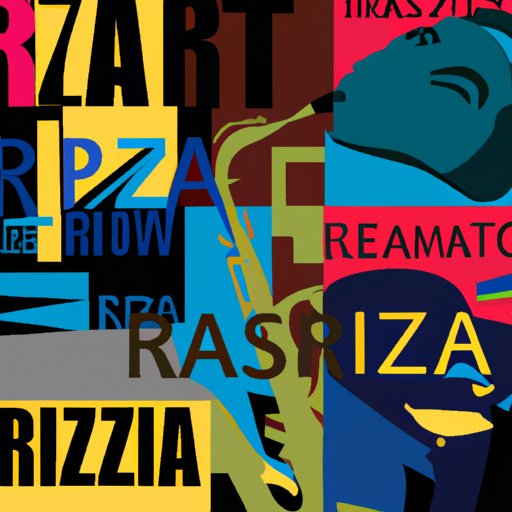Introduction
Jazz is one of the most influential musical genres of the 20th century. Born out of the African-American experience, jazz music has shaped and been shaped by the broader culture of the United States. From its humble beginnings in the early 1900s, jazz has had a far-reaching influence on American culture and continues to do so today.
Origins of Jazz and Its Influence on American Culture
Jazz originated in the late 19th century in the African-American communities of the Southern United States. The exact origins of jazz are still debated, but its development was heavily influenced by European-influenced ragtime and blues music. Jazz quickly spread throughout the country, with New Orleans being an important early center of jazz music.
The roots of jazz can be traced to several influences. One major influence was the gospel music of African-American churches, which used call-and-response patterns and improvisation. Ragtime, a style of popular music in the late 19th and early 20th centuries, also played a role in the development of jazz. Blues, another popular African-American genre, provided a foundation for jazz musicians to explore their own unique sound.
The cultural impact of jazz was felt almost immediately. Jazz helped to define the emerging “modern” culture of the 1920s, providing a soundtrack for the social changes at the time. Jazz was embraced by both white and black audiences, becoming a symbol of the growing racial integration of the era. The popularity of jazz was further bolstered by its embrace by Hollywood and other popular media.
Impact of Jazz on Music, Art, and Literature
Jazz had a profound influence on music, art, and literature. Jazz music itself evolved over time, incorporating elements from other genres such as swing, bebop, and fusion. Jazz musicians created new sounds and techniques that pushed the boundaries of traditional music.
Jazz had a huge impact on art and literature as well. Artists like Romare Bearden and Jacob Lawrence used jazz as a source of inspiration for their work. Writers like Langston Hughes and Zora Neale Hurston explored jazz as a subject in their writings. Jazz also inspired filmmakers and photographers, who captured the vibrancy of the jazz scene.

Social Implications of Jazz in America
Jazz had a significant impact on American society in the early 20th century. For African Americans, jazz offered a means of escape from the social and political oppression they faced. Jazz became a unifying force for African Americans, allowing them to express their unique identity and experiences through music.
Jazz also served as a powerful expression of freedom and individuality. Musicians were able to push the boundaries of music and create something entirely new. This spirit of experimentation and creativity was embraced by many, making jazz a symbol of the changing times.
Jazz was also used as a tool for protest and resistance. Musicians like Duke Ellington and Billie Holiday wrote songs that addressed the struggles of African Americans and called for social change. These songs resonated with listeners and helped to raise awareness of the injustices faced by African Americans.

Role of Jazz in Shaping Racial Identity in America
Jazz was instrumental in shaping racial identity in America. The music allowed African Americans to express their unique identity and heritage while also connecting them to a larger community. Jazz also served as a platform to challenge racism and discrimination. Musicians like Louis Armstrong used their fame to speak out against injustice and advocate for civil rights.
Jazz was also reflective of the changing race relations in the United States. As jazz gained popularity with white audiences, it opened up opportunities for African-American musicians to perform and collaborate with white musicians. This helped to break down some of the barriers between the races and laid the groundwork for future collaborations.

Development of Jazz from its Beginnings to Modern Times
Jazz has evolved over time as musicians have experimented with different styles and sounds. Early jazz was rooted in ragtime and blues, but as the genre developed, artists began to incorporate elements from Latin music, classical music, and rock. This experimentation led to the emergence of distinct jazz genres such as swing, bebop, and fusion.
Jazz has also had a profound influence on popular music today. Many modern artists have incorporated jazz elements into their music, from hip hop producers sampling jazz records to indie rockers experimenting with jazz chords. Jazz continues to inspire musicians and shape the musical landscape.
Conclusion
In conclusion, jazz has had a profound impact on American culture. From its origins in the early 1900s, jazz has influenced music, art, and literature, and has served as a unifying force for African Americans and a powerful tool for protest and resistance. Jazz has also had a lasting impact on popular music, with its influence still being felt today.
(Note: Is this article not meeting your expectations? Do you have knowledge or insights to share? Unlock new opportunities and expand your reach by joining our authors team. Click Registration to join us and share your expertise with our readers.)
